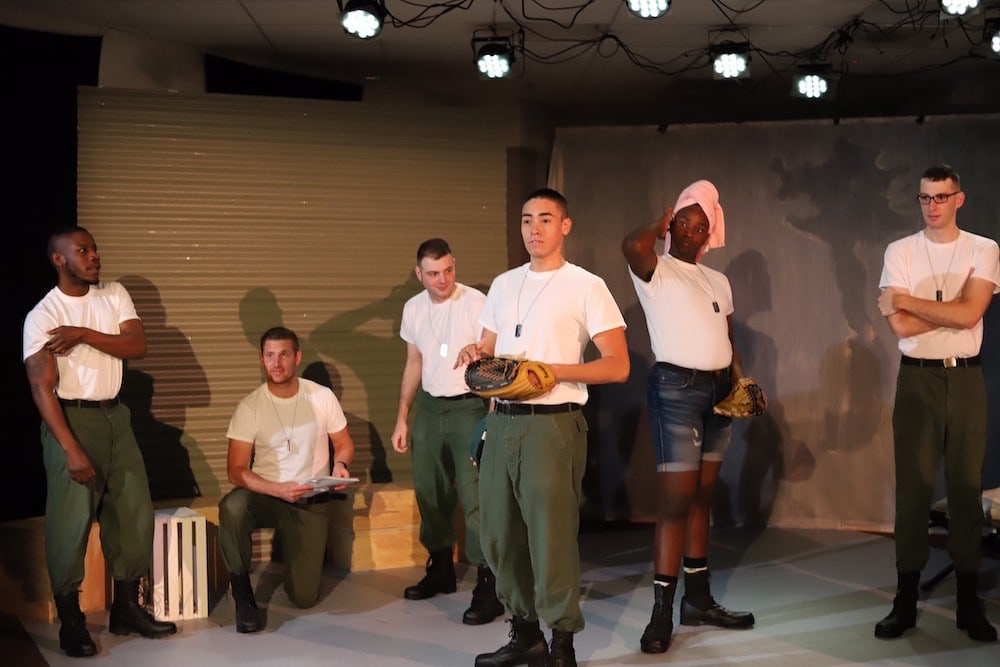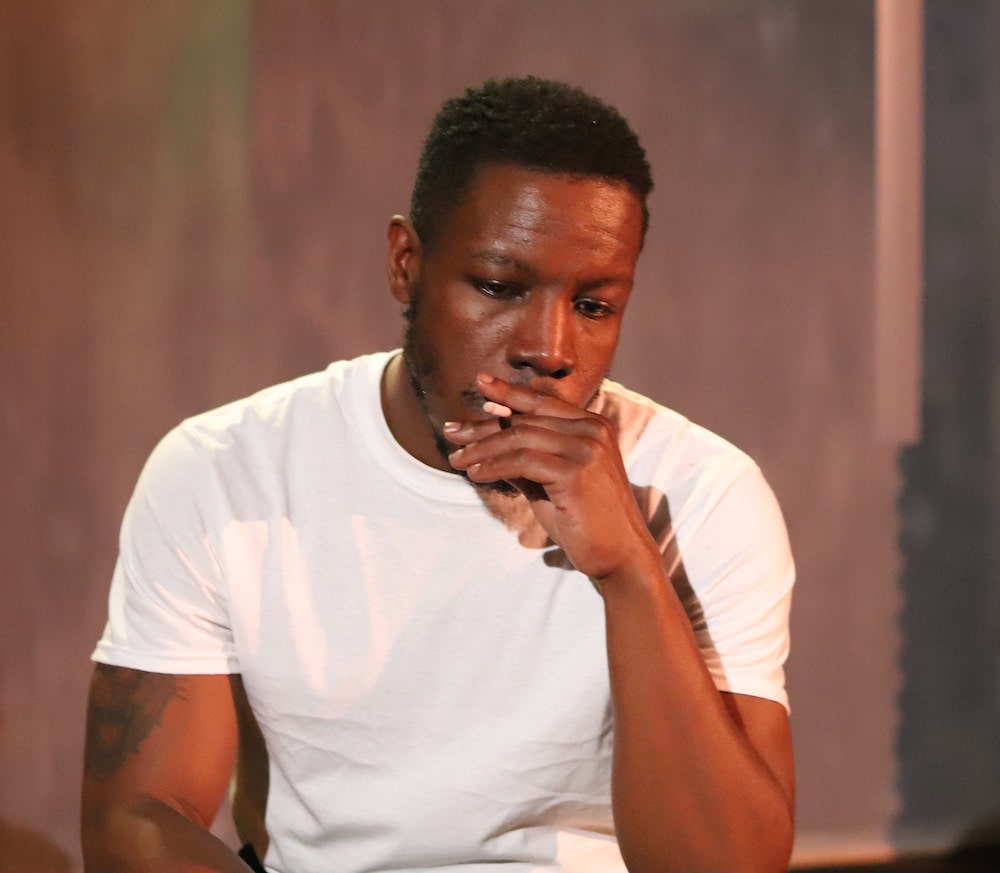Dispatch from the front. “Greetings: You are hereby ordered for induction in the Armed Forces of the United States.”

For those in the audience of the Boomer generation, Rainbow Theatre’s Blue Camp likely brought the Vietnam War quickly into sight along with the deep chill of receiving a draft notice with its “greetings” message. After all, between 1965 and 1972 compulsory military conscription (the draft) led about 2 million men into the U.S. military. Some in the audience might likely even have remembered a nationally televised Selective Service draft lottery show in December 1969.
Back in those days, available options to be exempted from military service were limited for those drafted. Not everyone had a serious medical condition such as a bone spur to exempt them from military service. And the outcome was grim for many drafted; there are more than 58,000 names of those killed inscribed on the Vietnam War wall in DC.
With that as a partial context; Rainbow Theatre’s production of Blue Camp is an essential, historically invaluable story to tell.
Set in 1964 when the United States began to ramp up its military might for that fucking war in Vietnam, Blue Camp is “about prejudice and a national policy of discrimination against gays in the military,” as playwrights Tim Caggiano and Jack Calvin Hanna wrote in their program notes. Blue Camp aims to provide a “unique glimpse” into the days leading up to the August 1964 Gulf of Tonkin incident and the beginning of major expansion of US combat troops in Vietnam.
My DCMTA colleague John Stoltenberg’s excellent review of Rainbow Theatre’s production of Blue Camp is here. Indeed, Blue Camp directed by Christopher Janson is “a human interest story with tenderness and truth.” But yes Blue Camp has its script and production weaknesses.
I found myself immersed in the production. (Author’s note: I was in military service during the Vietnam War). With terrific individual performances, the Blue Camp production soars with dialogue that has verbal wallop and truth-telling situations that resonate. But then in a snap or a bump other moments sound like “statements” for we the already convinced or scenes have with little dramatic tension or action. The play also has a very limited time horizon of a few months in mid-to-later 1964.

What I found very rewarding in Tim Caggiano and Jack Hanna’s Blue Camp script is that it chronicles the complexities and intersections of an array of marginalized individuals. Blue Camp presents plenty of critical elements beyond discrimination and the outing of gay military service members. Caggiano and Hanna developed a script with tense racial issues, urban/rural cultural divides, educational attainment strains and faith-based pressures.
The script also displays a welcome understanding of those who might volunteer for military service; those not from a middle-class background and college-educated. Characters who think they have no future and have few opportunities beyond military service to escape. Those who have had a rough start to their lives and want a chance to start again. Those who are serving with the hope of better lives with the help of GI and Veterans benefits that totally disappear with a dishonorable discharge.
Further, the Blue Camp script is generous with ribald, wicked barracks humor, witty sarcasm and plenty of irony. Blue Camp’s humor, at times, balances the characters’ visible and invisible wounds. It depicts loud boisterous humor as a survival mechanism.
But something nagged at me as the production ended. What generation would Blue Camp resonate with? As 2019 marks the first year someone born after 9/11 will be required to register for the draft and be eligible to enlist in the armed forces in a time after the “Don’t Ask, Don’t Tell Repeal Act of 2010, what might they think about Blue Camp and the history it depicts? And with only about 1% of the American population having a connection to military service, would the 99% just turn away from it.
Blue Camp is an affecting play about an important topic that deserves audiences. And it presents its many of its characters as complex genuine individuals with many facets to be explored. It left me wanting to talk about what I had seen.
Running time: One hour 55 minutes, including one intermission.
Blue Camp plays through November 24, 2019, presented by Rainbow Theatre Project performing in the Thurgood Marshall Gallery at Saint Augustine’s Episcopal Church – at 555 Water Street SW (across from Arena Stage), in Washington, DC. For tickets, go online.




